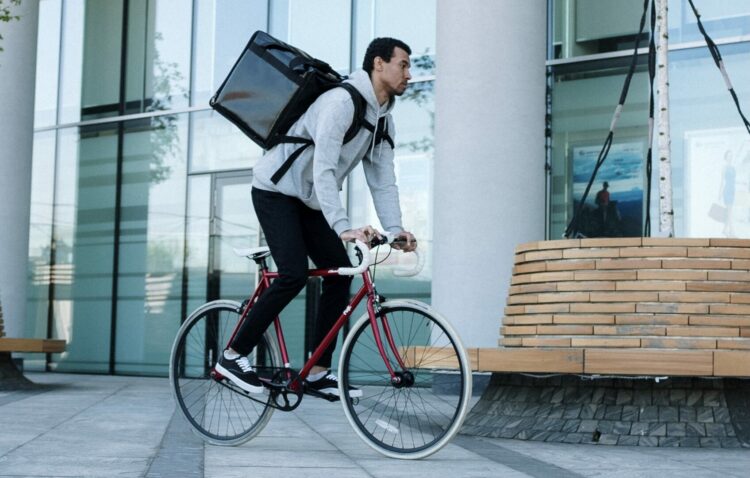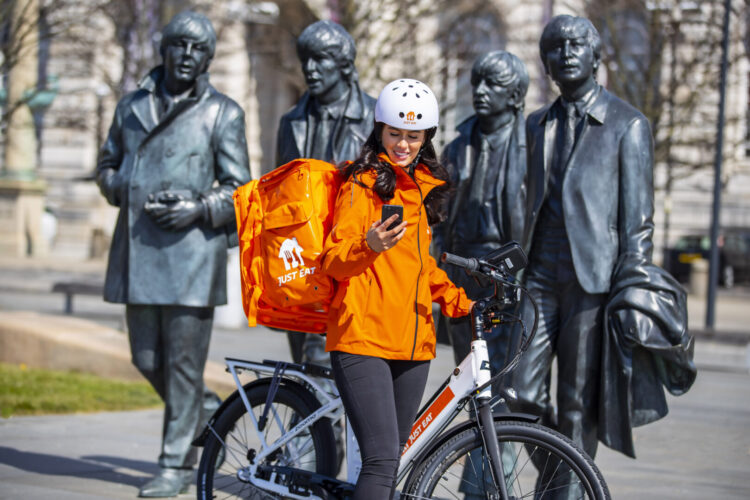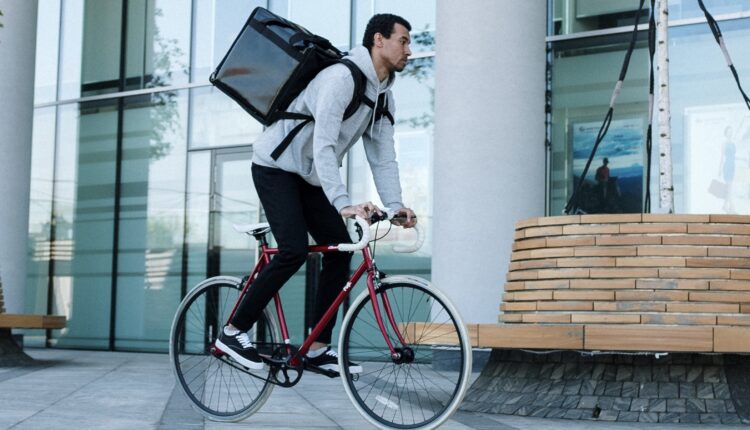Liverpool venture takes on Just Eats and Deliveroo
Peepl is a new venture set up by Liverpool digital entrepreneur Leon Rossiter and has secured £700,000 from the Metro Mayor to take on the food delivery giants in the city region. Tony McDonough reports

Liverpool digital entrepreneur Leon Rossiter has secured a £700,000 investment from Metro Mayor Steve Rotheram for his new venture which will rival delivery giants Deliveroo and Just Eat.
Peepl claims to be taking a “community-driven, ethical approach” to food delivery. The big platforms such as Deliveroo and Just Eat, as well as Uber Eats, typically charge local restaurants up to 37.5% commission on each meal sold and delivered.
This issue was highlighted during the pandemic when many restaurants were forced to pivot to a delivery-only service while they were closed during multiple lockdowns. In April, Amsterdam-based Just Eat said it would create 1,500 jobs in Liverpool this year as part of the rollout of its new agency worker model for couriers.
Mr Rossiter, former digital director at independent Liverpool and founder of Instinctive Digital, claims his platform will be 50% cheaper for its partner restaurants. Peepl’s software uses a form of localised currency called ‘Peepl Tokens’ to flow between sellers and buyers in the network – in this case, restaurants and people purchasing food from the restaurants.
Its token model is supported by Fuse, a blockchain network, for quick and cheap transactions that support local communities. The tokens can only be spent within the network, which keeps the money circulating within the city region economy.
Also Peepl rewards its customers by giving them back 5 to 10% of the price of their order as a reward, in PPL tokens. The tokens can be used to pay for other services in the Peepl network, and they will remain locked within the network for at least four to five years.
Mr Rossiter, co-founder and chief executive of Peepl, said: “The big delivery apps, alongside ride hailing platforms, extract large amounts of value from each transaction that takes place between people that live and work in the same city.
“I think most people are waking up to the fact that it doesn’t need to be this way. Advances in blockchain technology, alongside shifting values and laws, mean new business models are possible for the internet, and the local economies we all live in.”
For the past three years Mr Rossiter has also been an independent member of a 12-strong advisory investment panel that assesses requests for funding made to the Liverpool City Region Combined Authority’s Strategic Investment Fund (SIF).
The £700,000 investment into Peepl is also coming from the SIF. However, in such cases where a panel member is also an applicant, they will take no part in the assessment process to avoid any potential conflict of interest. Final investment decisions are made by the Combined Authority.

Of the £700,000 invested into the Peepl, £500,000 will fund its team and infrastructure and £200,000 will fund ‘kickstarter’ grants direct to restaurants, to enable them to offer incentivised offers to customers. Other members of the team include Verity Hall, Ivo Gavin, Adam Galloway, Obinna Ezekwem and Andrew Cecil.
The delivery element of the project will be delivered by six logistics hubs, one in each of the six city region local authority areas, enabled through Agile Liverpool.
Agile currently operates in Liverpool and employs its drivers on a full-time equivalent basis and will train and upskill new recruits using the Kickstart Scheme. Agile has previously recruited and rehabilitated ex-offenders.
Mr Rotheram added: “In the Liverpool city region, we aren’t the sort to simply follow the crowd. We like to be disrupters; to chart our own course and take great pride in our local businesses and community solidarity.
“Peepl has the potential to radically disrupt the food delivery market by bringing together all those values and injecting a lot more fairness – for riders and restaurants alike – to an industry not known for its treatment of workers.”

